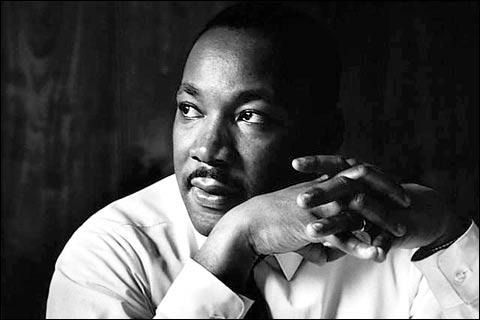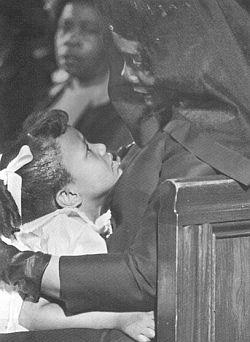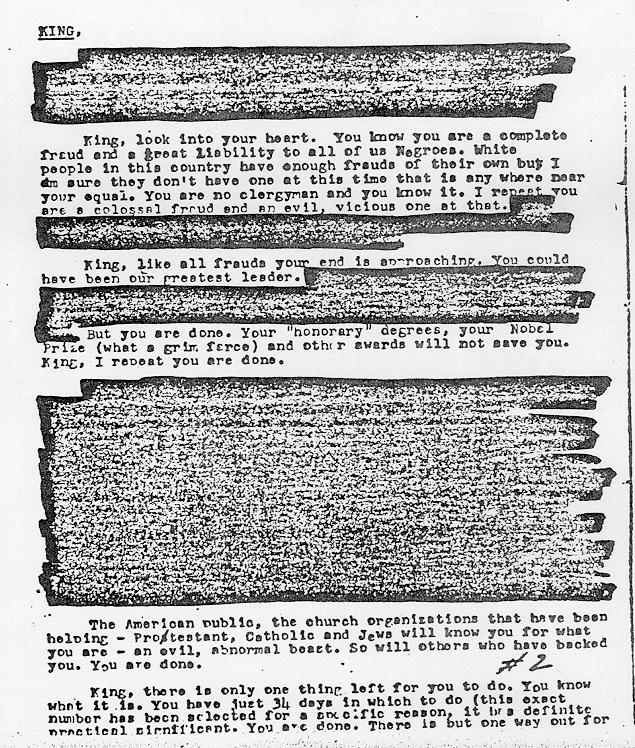|
A Terrible Piece
Of History: Martin Luther King Jr "Suicide Letter"
Character Assassination To
Assassination
October 25. 2007

Martin Luther King
When I read the suicide letter the FBI sent
Martin Luther King encouraging him to off himself, I was so offended. He was defamed in the letter as a horrible human
being not worthy of life. Today, it is ludicrous and contemptible in the content
of who the man became to world history, but still hurtful nonetheless.

Martin Luther King Jr's family
at his funeral after the assassination
Really, what was his crime that he was treated
like this. He wasn’t a divider or a communist. He was a black Southern preacher
encouraging the world to view each individual as an equal to the other. It was a
good, timely message and one I have subscribed to all my life. Can you imagine if he were still alive today.
How wonderful that would have been. Rest in peace, sir.

The website www.cointel.org
is an excellent reference
site that includes
declassified and liberated documents. It includes the FBI's letter to Martin Luther
King, Jr. urging him to commit suicide, sent just before he accepted the Nobel
Peace Prize (http://www.truthdig.com/uncovered).
STORY SOURCE
The FBI and Martin
Luther King
On October 10, 1963,
U.S. Attorney General Robert F. Kennedy committed what is widely viewed as one
of the most ignominious acts in modern American history: he authorized the
Federal Bureau of Investigation to begin wiretapping the telephones of the
Reverend Martin Luther King Jr. Kennedy believed that one of King's closest
advisers was a top-level member of the American Communist Party, and that King
had repeatedly misled Administration officials about his ongoing close ties with
the man.
Kennedy acted reluctantly, and his order remained secret until May of
1968, just a few weeks after King's assassination and a few days before
Kennedy's own. But the FBI onslaught against King that followed Kennedy's
authorization remains notorious, and the stains on the reputations of everyone
involved are indelible.
http://www.theatlantic.com
|

